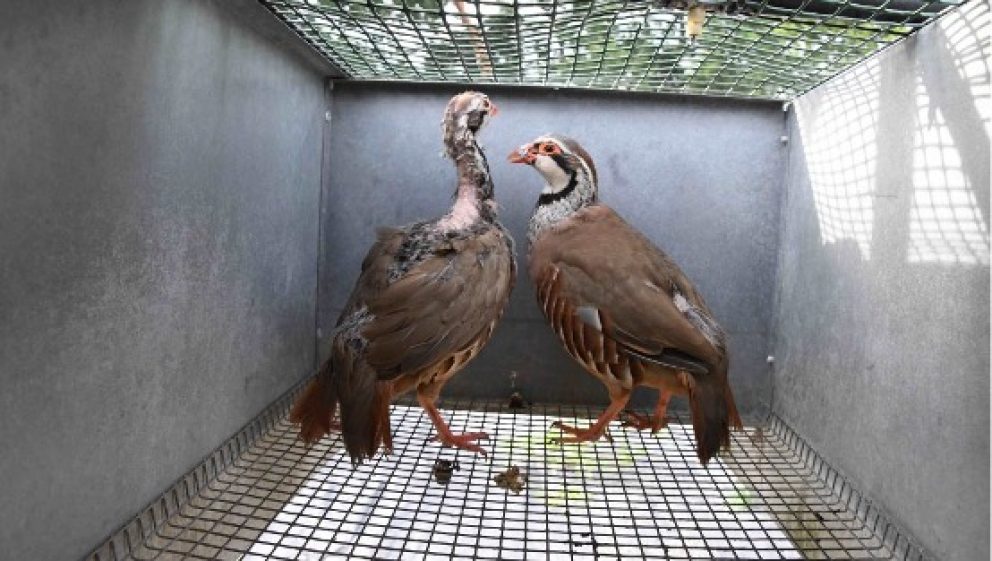More information about the pledges
1. A ban on cages for all game birds
Tens of thousands of breeding pheasants and partridges, used by the shooting industry, are kept in battery-style cages. Repeated investigations by Animal Aid have shown that these cages are often devoid of even the minimal ‘enrichment’ that is required by the government’s own Code and that they breach aspects of the Animal Welfare Act. Animal Aid is calling for a ban on the use of cages to confine breeding game birds.
Download our gamebird cages briefing sheet here
2. A halt to large-scale intensive farming units being given approval
There are many damaging impacts of intensive animal agriculture on the wider environment – water contamination, air pollution, the negative impacts on animal welfare and human health. In light of these, Animal Aid calls on the next Welsh Assembly Government to change the guidance on large-scale, intensive ‘broiler’ chicken farms in Planning Policy Wales. We welcome steps to curb the number of new plans for these farm units across Wales.
Download our intensive chicken units briefing sheet here
3. A ban on snares
Snares are used to capture wild animals who are deemed to be a ‘nuisance’ or ‘pest’. Studies have shown that not only do snares cause immense suffering, but they also capture non-target species, including domestic animals. Regulation of snares in Wales has proved a failure, so Animal Aid is calling for a ban on the selling of, buying of and use of any snares (or implements used in the style of a snare).
Download our snares briefing sheet here
4. Mandatory CCTV in all slaughterhouses
It has been shown that the presence of CCTV cameras can have a deterrent effect on illegal behaviour and bad practice (such as physical violence towards animals as well as inadequate stunning so the animals are not rendered insensible to pain when they go to the knife). The footage can be used as evidence in prosecutions. Animal Welfare is a devolved matter. England has implemented CCTV and it becomes mandatory in Scotland this coming July, so Animal Aid is calling for it to be introduced to slaughterhouses in Wales as well.
Download our CCTV in slaughterhouses briefing sheet here
5. Make daily plant-based food mandatory for all public sector menus
At present, it is not mandatory for public sectors menus to offer plant-based meals by default. Plant-based food can be enjoyed by everyone – including vegans, vegetarians, those wishing to reduce their meat intake, and those with religiously mandated diets. Plant-based foods also produce lower carbon emissions and will help the Welsh Assembly Government to meet its carbon reduction target. Animal Aid is calling on the next Welsh Assembly Government to introduce mandatory plant-based food options throughout the public sector.
Download our plant-based public sector briefing sheet here


